GP workload harming care, BMA poll suggests
- Published
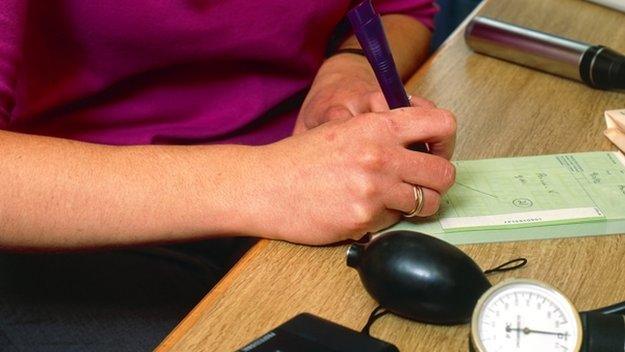
Better funding and more time with patients are needed to improve services, according to a survey of GPs.
The British Medical Association poll of more than 15,500 UK GPs found nine in 10 believed a heavy workload had a negative impact on the quality of care.
Only one in 10 felt standard 10-minute consultation slots were adequate.
Meanwhile, latest figures for routine hospital operations show waits have reached their worst levels since the 18-week target was introduced in 2008.
Hospitals are meant to treat 90% of patients in that time frame, but figures released on Thursday for February show they managed just 87%. That equates to more than 39,000 waiting longer than 18 weeks for treatments such as knee and hip replacements.
The target has only been hit once since last summer when the government announced the NHS was being allowed a "managed breach" of the target to allow it to deal with a backlog of long waiters.
At the time, it said waiting would return to normal by the turn of the year. The number of long waiters has dropped slightly.
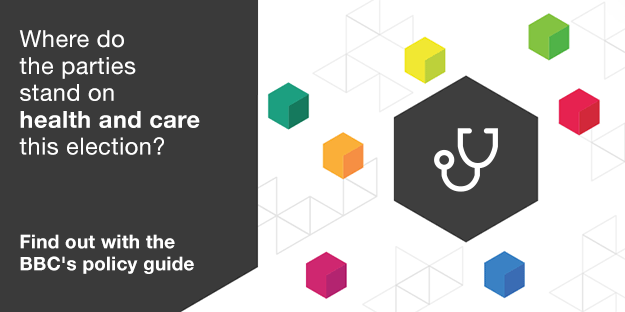
The GP survey, which comes as the state of services has become a key election theme, also cast doubt on the drive in England for seven-days-a-week opening.
On Tuesday, the Labour Party launched an election poster depicting a huge queue outside a waiting room with the wording "The doctor can't see you now" in a reworking of the Conservatives' "Labour isn't working" image of 1979.
Shadow health secretary Andy Burnham said GP services had "gone backwards".
The Tories rejected the criticisms and responded by pointing out that the coalition had launched a "challenge fund" to help GPs look at new ways to improve access to services by extending opening and making use of new technologies such as Skype.The poll by the BMA, which received responses from nearly a third of GPs working in the NHS, found:
Only 8% felt the standard 10-minute consultation was long enough
93% said their heavy workload had negatively affected the care they provided, with 37% saying it was unmanageable
Half said practices should offer extended opening, but only one in five thought seven-day services - as proposed by the coalition - should happen
When asked what measures should be taken to relieve the pressure, 76% said funding should be increased; 74% that more GPs be employed; and 70% wished for longer consultation times
The poll is the latest evidence of growing pressures on GPs.
Dr Zoe Norris: "The primary care system in this country is in crisis and nobody is dealing with that issue"
GPs see an estimated one million patients a day - up from 850,000 five years ago - while the latest Ipsos Mori poll of GP patients for NHS England found key measures, including ability to be seen and satisfaction with services, had fallen slightly in the past two years.

Read more on GPs

Dr Chaand Nagpaul, who chairs the BMA GP committee, said: "GPs want to provide better services and spend more time with their patients, especially the increasing number of older people who often have a range of multiple health needs that require intensive, co-ordinated care.
"Many GPs do not feel they have enough time to spend with their patients and that these intense pressures are beginning to damage local services."
Dr Maureen Baker, who chairs the Royal College of General Practitioners, said: "As our population ages, GPs are managing diseases and conditions that even a decade ago would have been automatically referred to hospital consultants, and it is becoming increasingly difficult to meet patients' needs within the confines of the traditional 10-minute consultation.
"It is important that patients are able to see a GP when they need one - and that patients with complex and multiple illnesses are given the time that they need - but hard-pressed family doctors are already working record hours to try and meet demand."
A spokeswoman for NHS England said its five-year plan, published last autumn, recognised GPs were under pressure and a "step change" was needed in investment, which would kick off this year with an extra £250m for premises.
She also pointed out that there was flexibility in the way that services were run to allow doctors to extend consultations beyond 10 minutes - that was just the average time they were meant to last.
- Published7 April 2015
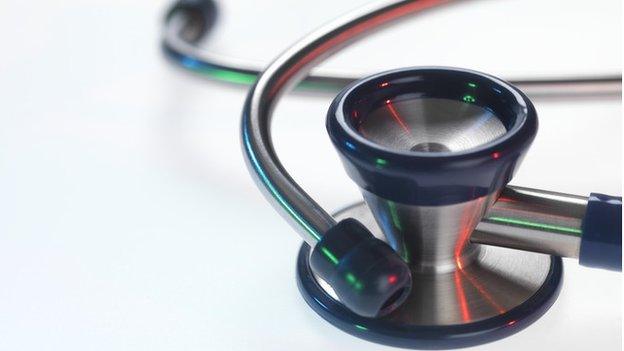
- Published4 November 2014
- Published30 September 2014
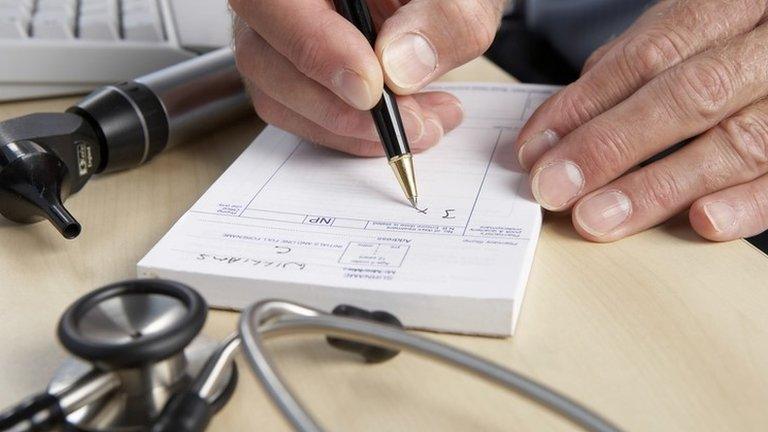
- Published30 September 2014
- Published3 July 2014
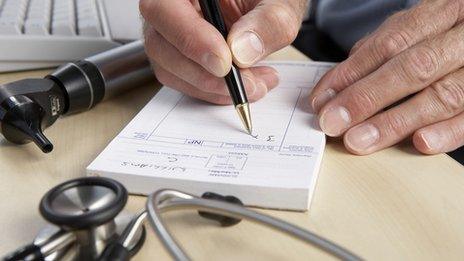
- Published3 October 2013

- Published14 April 2014

- Published24 December 2013
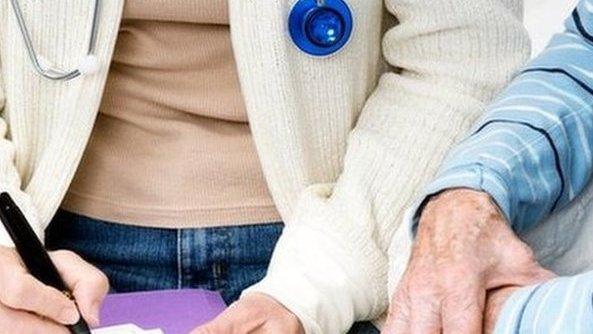
- Published1 October 2013

- Published1 October 2013